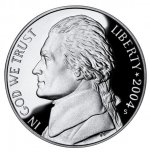Magdave
New member
Just a reminder that with the temps falling it is a good time to check your tire pressure. When for an hour ride today and still had some instability over 65mph  When I got home and let things cool down I checked my pressures. I have not checked them in 1 month but here is what I found Frt 14psi rear 24.5psi. A month ago they were Frt 18 rear 28. Could that be a factor in my squirrelly 65+ situation? Cooler temps always cause pressures to drop. Now the discussion. I have been driving Corvettes for over 10yrs in fact traded my '98 for the Spyder and found that using nitrogen instead of air had some benefit to it.
When I got home and let things cool down I checked my pressures. I have not checked them in 1 month but here is what I found Frt 14psi rear 24.5psi. A month ago they were Frt 18 rear 28. Could that be a factor in my squirrelly 65+ situation? Cooler temps always cause pressures to drop. Now the discussion. I have been driving Corvettes for over 10yrs in fact traded my '98 for the Spyder and found that using nitrogen instead of air had some benefit to it.
1. Air(oxygen) can and does weep through rubber.
2. Nitrogen does not
I know a lot of people say nitrogen is snake oil but my experience tells me differently. With air after a long drive my tire pressures were usually 4-5lbs higher when they were hot. With Nitrogen it was usually 2-3 lbs. With air every fall I had to add air because the TPMS would start yelling at me. I ran year round with nitrogen and cold tire pressure remained the same. Nitrogen molecules are larger that some of the gasses(oxygen) in air that weep through rubber. That is the scientific reason it does not weep as much. We all know racers use nitrogen because it simply is more stable and predictable for hot tires. Since we have 2 ply crappy tires I would assume they may weep even more. Yes I know air is 79% nitrogen but that 21% can and does shrink more with lower temps than pure Nitrogen does. I am considering going to full nitrogen on my Spyder and wonder if anyone else has and what results were?
Thanks for your thoughtful replies :thumbup:
1. Air(oxygen) can and does weep through rubber.
2. Nitrogen does not
I know a lot of people say nitrogen is snake oil but my experience tells me differently. With air after a long drive my tire pressures were usually 4-5lbs higher when they were hot. With Nitrogen it was usually 2-3 lbs. With air every fall I had to add air because the TPMS would start yelling at me. I ran year round with nitrogen and cold tire pressure remained the same. Nitrogen molecules are larger that some of the gasses(oxygen) in air that weep through rubber. That is the scientific reason it does not weep as much. We all know racers use nitrogen because it simply is more stable and predictable for hot tires. Since we have 2 ply crappy tires I would assume they may weep even more. Yes I know air is 79% nitrogen but that 21% can and does shrink more with lower temps than pure Nitrogen does. I am considering going to full nitrogen on my Spyder and wonder if anyone else has and what results were?
Thanks for your thoughtful replies :thumbup:

